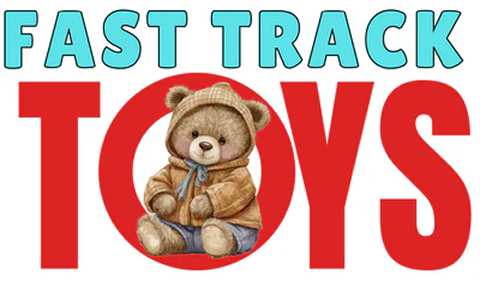Logic-based toys are more than just playthings; they are essential tools for building essential cognitive skills in children. From strengthening problem-solving abilities to boosting creativity, these toys prepare young minds for real-world challenges while keeping them engaged in play. Whether it’s a classic jigsaw puzzle, a brain teaser, or a construction set, logic-based toys offer endless benefits for kids and even adults. Let’s dive deeper into the world of logic-based toys and uncover how they can transform playtime into a learning experience.
What Are Logic-Based Toys?
Logic-based toys are designed to engage players in activities that require critical thinking, strategy, and reasoning. Unlike passive forms of entertainment, these toys actively stimulate the brain. Products like puzzles, pretend-play sets, and thinking games challenge kids to think beyond the obvious, fostering creativity and patience. Explore some exciting options in the Thinking Toys Collection to spark curiosity in your child.
The Benefits of Logic-Based Toys
1. Enhance Problem-Solving Skills
Logic-based toys encourage kids to think critically about solutions. For instance, a maze or puzzle game forces the player to evaluate patterns, predict outcomes, and adapt strategies when faced with challenges. Toys from the Puzzle Games Collection are particularly effective in sharpening these skills.
2. Boost Creativity and Innovation
Many logic-based toys, like building blocks or 3D puzzles, offer open-ended play that sparks imagination. These toys challenge players to create unique solutions or designs, promoting out-of-the-box thinking. Pretend play sets from the Pretend Toys Collection can also stimulate storytelling and role-playing, which are crucial for cognitive and emotional development.
3. Develop Patience and Persistence
Solving a challenging puzzle or completing a complex construction set often requires time and perseverance. These toys teach children that success comes through effort and resilience, valuable lessons that apply far beyond playtime.
4. Improve Focus and Attention
With distractions everywhere, maintaining focus is a skill that needs nurturing. Logic-based toys demand concentration and sustained attention, helping kids improve these abilities naturally.
5. Encourage Collaborative Play
Many logic-based toys are ideal for group activities, teaching kids teamwork and communication. Games that require cooperative problem-solving or healthy competition build social skills alongside cognitive abilities.
Popular Types of Logic-Based Toys
Puzzle Games
Jigsaw puzzles, Sudoku, and brain teasers are classic examples of toys that enhance spatial awareness and logical reasoning. They’re perfect for individual play or family bonding sessions. Explore the wide variety of Puzzle Games to find the right fit for your child.
Building and Construction Toys
Toys like magnetic tiles, LEGO sets, or complex mechanical kits allow kids to construct and deconstruct structures. These activities enhance motor skills, spatial intelligence, and creativity.
Pretend Play Sets
Pretend toys like kitchen sets or doctor kits are underrated logic-based tools. They encourage problem-solving through role-play scenarios. Visit the Pretend Toys Collection for engaging sets that spark imaginative play.
Thinking and Strategy Games
Games like chess, checkers, and Rubik’s cubes are excellent for strategic thinking. These games teach kids to think several steps ahead, plan, and execute strategies effectively. Browse the Thinking Toys Collection for inspiring options.
How to Choose the Right Logic-Based Toys
1. Consider Age Appropriateness
Toys should align with your child’s developmental stage. For younger kids, simple puzzles and stacking toys work well, while older children may prefer complex 3D puzzles or strategy games.
2. Focus on Interests
Select toys that align with your child’s hobbies or interests. For instance, a child who loves storytelling may enjoy pretend-play sets, while a tech-savvy kid might prefer STEM-based building toys.
3. Prioritize Quality and Safety
Ensure the toys are made from non-toxic, durable materials. High-quality products not only last longer but also provide a safer play experience.
4. Balance Fun and Challenge
Toys should strike the right balance between being fun and challenging. Overly simple toys may bore your child, while excessively complex ones could frustrate them.
Incorporating Logic-Based Toys into Daily Life
Family Game Nights
Make family time more meaningful with logic-based games. Choose puzzles or strategy games that everyone can enjoy. This not only fosters bonding but also sets a positive example of problem-solving in action.
Educational Play Sessions
Introduce toys that double as learning tools. For instance, pattern-based puzzles can teach math concepts, while pretend play sets can explore real-world professions.
On-the-Go Play
Travel-friendly logic-based toys can keep kids entertained during trips while stimulating their minds. Compact puzzles or portable building kits are great options.
Final Thoughts: The Lifelong Value of Logic-Based Toys
Logic-based toys are more than just playthings; they are investments in a child’s future. By enhancing problem-solving skills, fostering creativity, and encouraging persistence, these toys prepare kids for the complexities of the real world. Explore collections like Puzzle Games, Pretend Toys, and Thinking Toys to find the perfect options for your family.
Start turning playtime into a powerful learning experience today. After all, every big thinker began with small puzzles!


